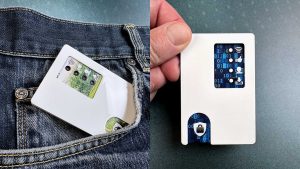- Introduction
- User Control Over Own Identity
- A Paradigm Shift Restoring Lost Trust
- A Path for Governments and Privacy Advocates
- Frequently asked questions
Privacy
Introduction
Decades of convenience-centric authentication systems have produced hundreds of millions of cybercrime victims — “digitally scarred” citizens. The number of people distrusting the digital world is steadily increasing, now further fueled by AI-driven crime. Today, we accept what the tech industry dictates simply because we have no choice — we need our phones, our notebooks, our connectivity — to remain part of the digital world. Until fundamentally new solutions emerge, this problem will only worsen.
Running security systems is a constant battle between new emerging attack methods and countermeasures. While identity fraud keeps increasing, APPSCARD has developed a new generation Biometric System-on-Card that offers a superior level of security and privacy.
Architected from the ground up to address these challenges, the APPSCARD platform enables:
User Control Over Own Identity
Storing a user’s identity inside a personal smartcard literally returns control of assets back into the user’s pocket — just as it was when our assets were physical and we held the keys ourselves.
Trust is an asset that’s easy to lose and hard to regain. As a complete, local biometric system within a user-carried device, APPSCARD represents a paradigm shift — restoring trust through true user sovereignty.
A Paradigm Shift Restoring Lost Trust
Moving our “keys” from centralized systems back into users’ hands means:
- No more databases from which user keys can be stolen
- No communication lines that can be intercepted
- No external servers storing or managing user identities
- No dependency on third-party authentication providers
A Path for Governments and Privacy Advocates
For decades, governments and privacy advocates have lacked robust, mass-market alternatives to centralized identity systems — making it nearly impossible to fight back.
Strong decentralized solutions, such as the one offered here, create an opportunity to push global system integrators:
- through legislation
- through tenders that protect end users
- through the adoption of open, verifiable architectures
Trust must not only be understood — it must be felt.
Addressing today’s and tomorrow’s digital challenges requires a paradigm shift. A government-grade, fully decentralized biometric ID — carried in every users pocket, wallet, or lanyard — represents exactly that shift.





